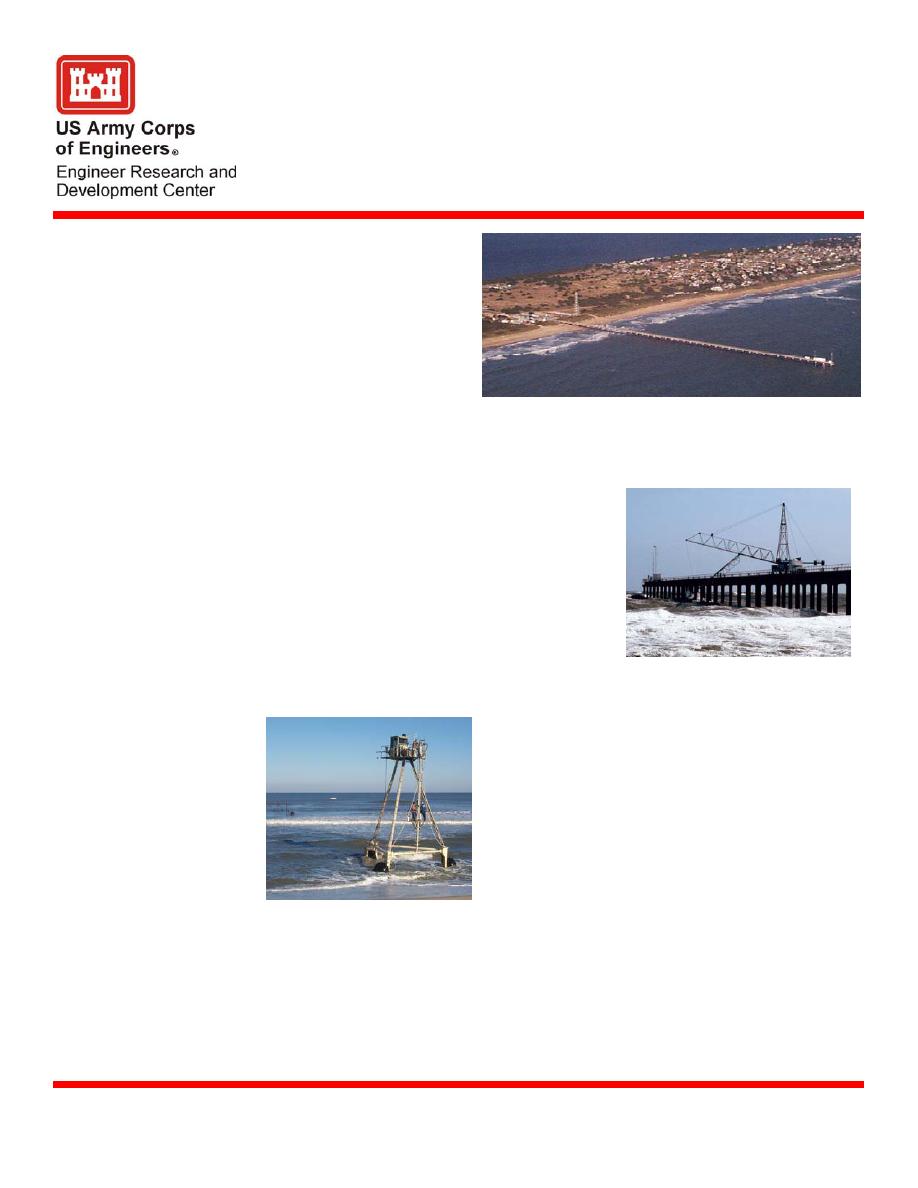
Field Research Facility
Duck, NC
Description
The Field Research Facility
(FRF), located in Duck, NC,
was established in 1977 to
support the Corps' coastal
engineering mission. The FRF
is recognized as a premier
location for coastal field
studies. Central to the FRF is a
560-m-long steel and concrete
research pier that extends to
the ~7 m water depth contour.
Other facilities include a multi-purpose conference room, 40-m observation tower, and
Specifications
specialized vehicles: the Coastal Research Amphibious Buggy (CRAB), and Sensor
Insertion System (SIS) The 10-person staff of computer specialists, technicians, and
oceanographers are known for their ability to collect
data, design experiments, and conduct research.
The CRAB (photo below) is equipped with
centimeter-level DGPS and is used for precisely
surveying from the beach out to the 9 m depth
contour. It also serves as a stable platform for
instrument deployments; side-scan sonar studies;
vibracoring, sediment sampling; and for towing
instrument sleds. The crane-like SIS (right) can
operate in 5-m waves, is able to reach 15 to 24 m
out from the pier, and is used to deploy instruments
anywhere along the pier. The SIS is equipped with wave gauges, current meters, and
sediment transport sensors.
FRF research into weather, waves, currents, tides and
Benefits
beach change has had international impact. CRAB
measurements have defined how beach and nearshore
sand bars respond to seasonal and storm changes.
Highly resolved wave information has provided new
knowledge of the major forces that affect our coasts.
Sediment transport data gathered during storms has
revealed the strengths and weaknesses of our beach
erosion prediction capabilities. These results and those
of hundreds of investigators that have experimented at
the FRF are used throughout the world.
The FRF is an ideal location for conducting a wide variety of coastal studies. Recent
Application
experiments have included such diverse topics as: providing ground-truth for Navy remote
sensing and coordinating major surf zone experiments. Potential users from industry,
academia or government are encouraged to visit the FRF web site.
Herman (Carl) Miller email . Visit the FRF home page
Point of Contact
U.S. Army Engineer Research and Development Center
23 Sept 2004
Coastal and Hydraulics Laboratory (Facility)
www.erdc.usace.army.mil




 Previous Page
Previous Page
